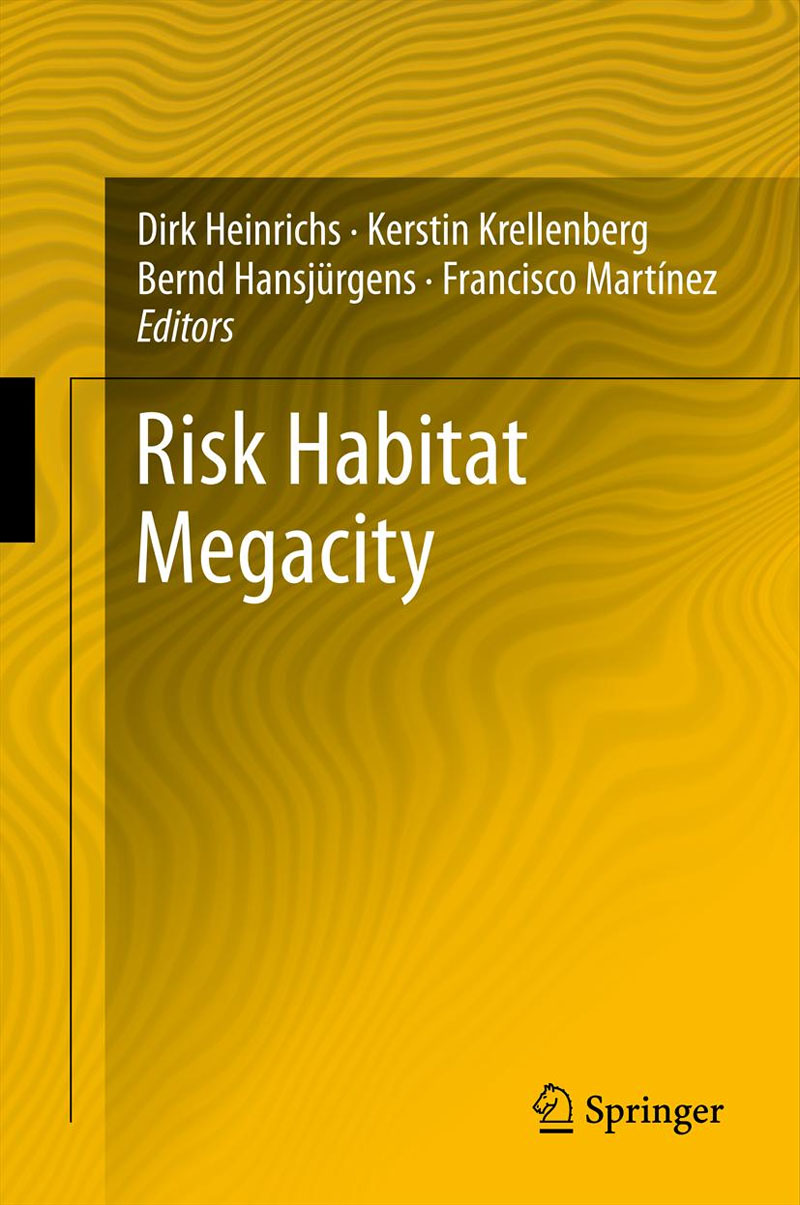Strategies for Sustainable Development in Megacities and Urban Agglomerations
A Helmholtz Research Initiative 2007 - 2011
Outcomes
New knowledge.
According to the interdisciplinary character of the initiative, interdisciplinary knowledge was exchanged and applied. This holds especially true for joint publications and the education of young researchers.
Chilean-German exchange.
The overall success of the initiative was guaranteed through continuous Chilean-German coordination meeting, and continuous exchange between the German and Chilean counterparts. Three annual status conferences were organised with all project partners. Two of them took place in Santiago de Chile (2008 and 2010). The 2009 status conference was organised in Leipzig. Each of the status conference included a PhD specific activity like poster session or individual PhD workshops.
PhD education.
The status conferences were accompanied by PhD summer/winter schools (Los Andes, Naumburg, Santiago de Chile) whereof two were mainly organised by the PhD themselves.
Regional Implementation.
Transdisciplinarity was assured by strong collaboration with the Regional Government (GORE) in Santiago and intensive exchange with local experts both scientists and practitioners in the different topics. In this context several workshops on different levels were organized.
German Platform on Megacity Research.
Intensive exchange with other scientists, politicians, etc. as well as representativeness of the research initiative could be achieved by participating in several Innovation forum (BMBF), giving joint presentations with other Megacity research initiatives (BMBF + DFG) at conferences (e.g. World Urban Forum), and throughout a good reputation of individual topics and the overall initiative at international conferences in general.
International Programmes.
An excellent research network in Chile and Latin America could be established and visibility within the broader scientific community (UGEC (Urbanization and Global Environmental Change) project of the International Human Dimension Program -IHDP, World Bank, Siemens, etc.) and among politicians could be achieved. This was underlined by the co-organisation of the Forum Bogotá - Berlín – Beijing - Desafíos y Soluciones para las Megaciudades, as an integrated scientific event of the ExpoDeutschland 2008 in Bogotá (Columbia).
International Conference.
The research initiative organized the international conference ‘Megacities: Risk, Vulnerability and Sustainable Development’ with more than 200 participants in 2009 in Leipzig. This conference offered a platform for exchange within the worldwide Megacity research community. The conference included more than 100 presentations, three key note speeches, a poster session and a young researchers’ workshop.
Regional Platform Latin America.
Among the results is a regional Panorama, a comparative study on Sustainability in six Latin American Megacities under the auspices of the United Nations Economic Commission for Latin America and the Caribbean.
Web-based meta data system.
Through the elaboration and establishment of a meta data system, exchange of data between all participating partners of the initiative could be guaranteed and facilitated.
Glossary of Terms
This Glossary (lat.: Glossarium – language, foreign word) contains a list of terms and its definitions in the context of the “Risk Habitat Megacity” research initiative. It focuses on terms that are closely related to the three Cross-Cutting-Concepts ‘Risk’, ‘Sustainable Development’ and ‘Governance’.
The aim of the glossary is to facilitate a conscious handling of language and the use of common terminology as an important prerequisite for communication und common work across multiple disciplines, cultures and languages, dealing with shared research topics.
This three-lingual glossary is the result of the cooperation between the Risk Habitat Megactiy research initiative and Arne Kühn, diploma student of the Institut für Angewandte Linguistik und Translatologie – IALT – an der Universität Leipzig.
Visit the Glossary: ![]()
![]() http://data.risk-habitat-megacity/wiki/doku.php
http://data.risk-habitat-megacity/wiki/doku.php
Videos.
For visualization and learingn, a series of videos were developed explaining the overall problems of Santiago de Chile and tackling the FoA-specific risks and opportunities. Both German and Latin American involved scientists stated their proper points of view.
Atlas.
The development of an urban geo-science Spanish-English web-based Atlas is still under consideration. This Atlas will make the main results in terms of maps available for the public.
UN Decade.
Furthermore, the research initiative was awarded as an official project of the UN decade ‘Education for sustainable development’ 2009/2010.
German minister Shavan visiting RHM project.
In 2009 the initiative was visited in Santiago de Chile by the German minister of education (Mrs. Schavan).
